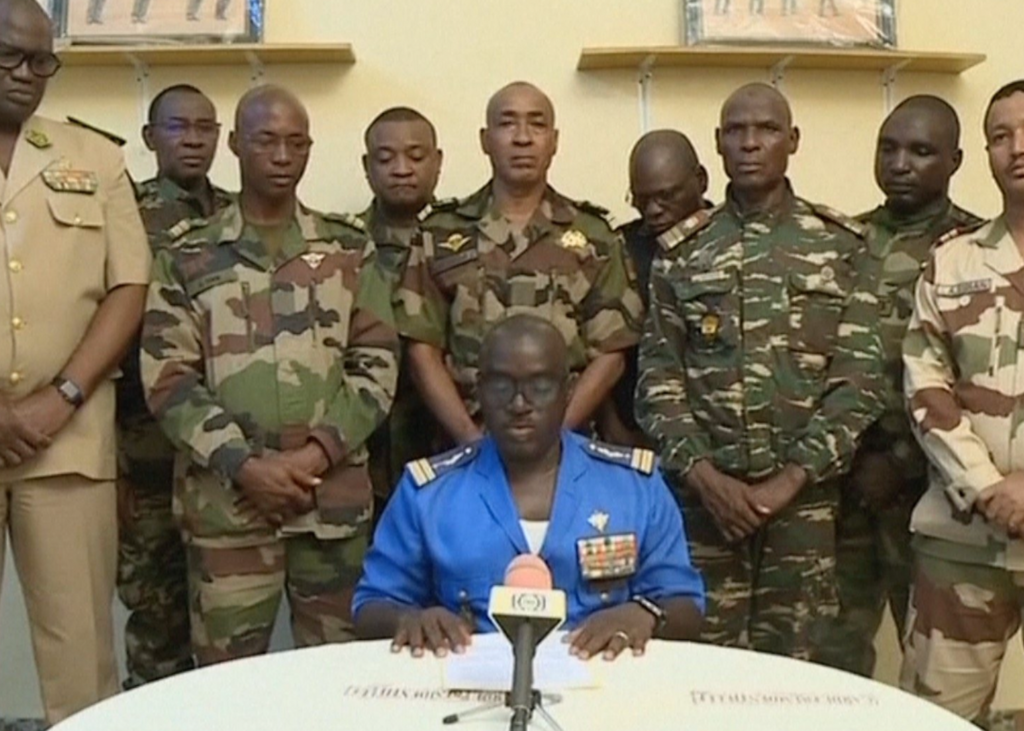
Soldiers in Niger appeared on national TV late Wednesday to announce the ouster of President Mohamed Bazoum.
Calling themselves the National Council for the Safeguard of the Homeland (CLSP), they read a coup statement in a video they shot and broadcast on state television ORTN.
Bazoum was overthrown and the constitution was suspended due to the worsening security situation and socio-economic crisis the country was going through, according to a statement by Col. Major Amadou Abdramane.
The statement noted that a curfew will be imposed between 10 p.m. and 5 a.m. and that all borders have been closed.
President Bazoum was detained in the morning by elements of the presidential guard.
People took to the streets to prevent the coup and called for Bazoum’s release.
General Omar Tchiani, who has served as the commander of the presidential guard for about 10 years, is allegedly behind the coup.
It was alleged that Bazoum recently wanted to dismiss Tchiani, who held the same post under the previous President, Mahamadou Issoufou.
The African Union, Economic Community of West African States (ECOWAS), European Union, UN and France condemned the actions of the Nigerien military and called for the unconditional release of Bazoum, 63, who was democratically elected in April 2021.
– History of military coups
Niger, a landlocked West African nation, has had a tumultuous history, facing various coups and coup attempts since gaining independence from France in 1960.
The latest act by the elite presidential guard has heightened concerns among citizens, who have flooded social media, fearing potential coup attempts.
In 1964, the country faced its first coup attempt, followed by a successful military coup in 1974 led by Lt. Col. Seyni Kountche. Kountche’s military regime remained in power until he died in 1987.
In 1996, Col. Ibrahim Bare Mainassara orchestrated another coup, resulting in the death of democratically elected President Mahamane Ousmane.
A return to civilian rule occurred in 1999, leading to the election of President Mamadou Tandja.
In 2010, however, Tandja’s attempted extension of his presidential term resulted in military intervention and his removal from power.
In 2011, Niger successfully transferred power through democratic elections, electing President Mahamadou Issoufou.
Despite political tensions in 2020, Niger managed to avoid another coup.
